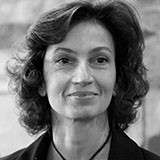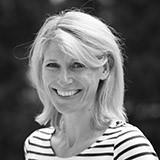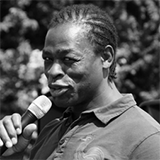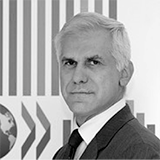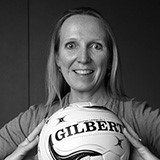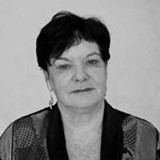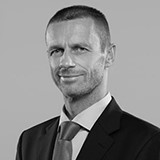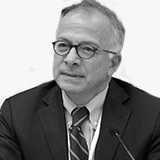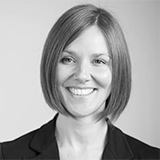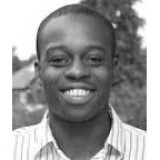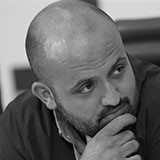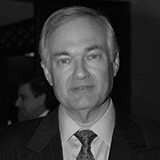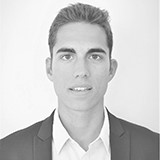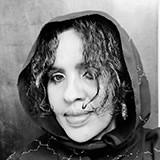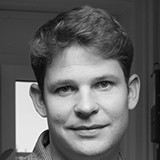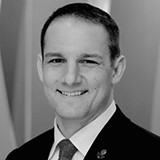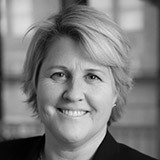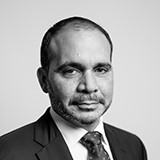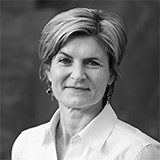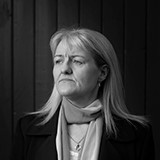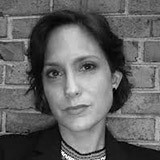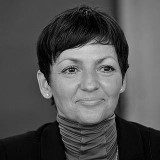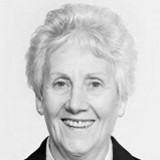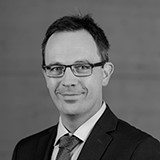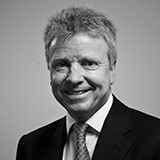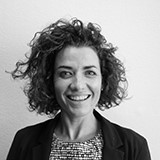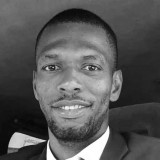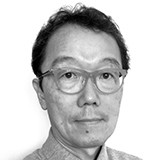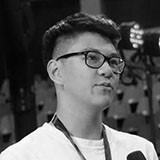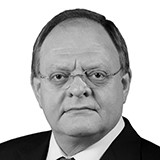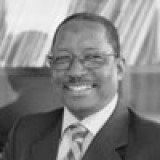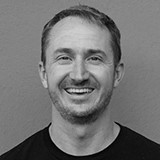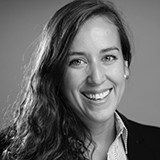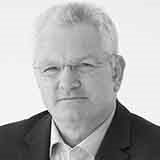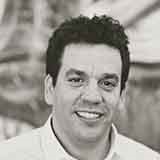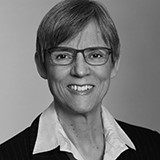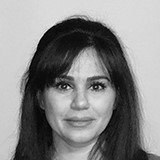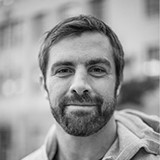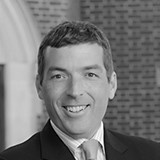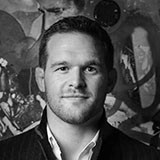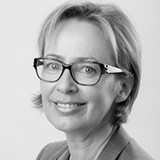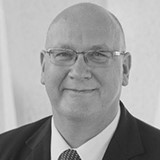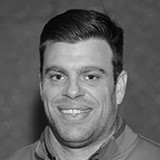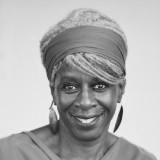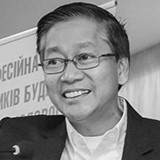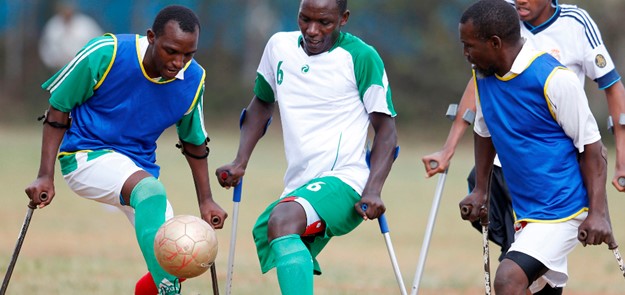
Speakers
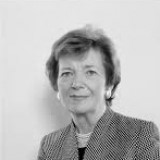
Mary Robinson, Chair, Centre for Sport and Human Rights
Mary Robinson, the first woman President of Ireland (1990-1997), former United Nations High Commissioner for Human Rights (1997-2002), and founder and President of Realizing Rights: The Ethical Globalization Initiative (2002-2010), has spent most of her life as a human rights advocate.
The recipient of numerous honours and awards throughout the world including the Presidential Medal of Freedom from President Obama, Mary is Chair of The Elders, former Chair of the Council of Women World Leaders, and a member of the Club of Madrid. Mary Robinson now serves as President of the Mary Robinson Foundation – Climate Justice. Mary was the founding Chair of IHRB from 2009 to 2012. She also chairs the Centre for Sport and Human Rights.
Audrey Azoulay, Director General, UNESCO
A graduate of France’s Ecole Nationale d’Administration and of the Paris Institut d’Etudes Politiques, she holds a diploma in Business Administration from the University of Lancaster (UK).
Having worked in the sector of culture since the start of her professional career, Audrey Azoulay has notably focused on the funding of French public broadcasting and on the reform and modernization of France’s film support system. She has also served the European Commission providing her expertise on issues concerning culture and communication.
In 2014, as an advisor on culture to the President of the French Republic, she notably initiated the development of a protection plan for heritage in danger, which she was able to implement in 2016 as Minister of Culture and Communication. She has also prioritised improving children’s access to culture with the launch of artistic and cultural education school programmes “Création en cours” and created innovative cultural outreach programmes for people in remote and vulnerable areas “Microfolies”.
Federico Addiechi, Head of Sustainability and Diversity, FIFA
Federico Addiechi is responsible for sustainability at FIFA and reports to the Secretary General.
Federico worked in various capacities in the sports industry before joining FIFA in 2003 to take charge of the CSR and humanitarian activities of world football’s governing body and of its relationship with the United Nations system and non-governmental organisations.
In his role as Head of Sustainability & Diversity, Federico initiated and implemented programmes to address issues ranging from social development through football, education, human and labour rights to climate protection, waste management, accessibility for fans, discrimination and green stadiums. He also contributed to strengthening FIFA’s management system through the integration of sustainability standards, policies and reporting frameworks for FIFA and the FIFA World Cups.
As a former professional volleyball player (Argentinian national team; Italian and Swiss leagues) and through his current role as a board member of the Swiss Volleyball Federation, Federico has an intimate knowledge of the world of sports administration and competition management as an athlete, manager and official. He is member of the Board of the 2010 Legacy Trust and Chairman of the Board of the Daniel Nivel Foundation.
Federico has an undergraduate degree in engineering from the University of Mar del Plata, Argentina, and studied human sciences and philology at the University of Catania, Italy. He holds an Executive MBA from the University of Dallas, USA, and completed the Executive Programme on Corporate Social Responsibility at Harvard Business School, USA. Federico has Argentinian, Italian and Swiss citizenship.
Federico speaks Spanish, English, Italian, French, German and Portuguese and lectures on sustainability and sport at numerous courses, conferences and seminars worldwide, as well as at the CIES post-graduate programme.
Nada Al-Nashif, Assistant Director-General for Social and Human Science, UNESCO
Nada Al-Nashif took up her duties as Assistant Director-General for Social and Human Sciences at UNESCO on 16 February 2015.
She is the holder of a BA in Philosophy, Politics and Economics (1987) from Balliol, Oxford University and a Master’s in Public Policy (1991) from the Kennedy School of Government, Harvard University.
Prior to joining UNESCO, she served (2007-2014) as Assistant Director-General/Regional Director of the International Labour Organization’s Regional Office for Arab States, based in Beirut, Lebanon. Previously she worked at UNDP, where she started her UN career in 1991, serving in Libya (1992-1995), Lebanon (2000-2004), Iraq (2003) and at Headquarters in New York (1995-2000, 2005-2006).
As a development economist and practitioner, Nada serves in an advisory capacity on several boards, notably the Boards of Trustees of Birzeit University and the Human Development NGO, Taawon.
Beate Andrees, Chief of the Fundamental Principles and Rights at Work Branch, ILO
Ms Beate Andrees is the Chief of the ILO’s Fundamental Principles and Rights at Work Branch, based in Geneva, Switzerland. The Branch promotes policy development, carries out research, and provides technical advisory services on child labour, forced labour, non-discrimination and freedom of association and collective bargaining. Previously, Beate Andrees acted as the head of the ILO Special Action Programme to Combat Forced Labour. In this role, she coordinated the ILO’s efforts towards the adoption of a new Protocol and Recommendation on contemporary forms of forced labour in June 2014 and managed technical cooperation programmes in various countries.
Before joining the ILO, Beate worked for the German Parliament and as a lecturer at the Free University of Berlin, Germany. She has published widely on issues related to fundamental labour rights, migration and human trafficking.
Anastasia Anthopoulos, Programme Officer, International, Oak Foundation
Anastasia Anthopoulos is Programme Officer at the Child abuse Programme of Oak Foundation. Her portfolio includes support and partnership with organisations, alliances and champions that share the Programme commitment to prevent child sexual abuse. Her portfolio of grants supports a shift from standards to implementation of commitments towards children, with a focus on financial and sporting institutions.
Prior to joining Oak Foundation, Anastasia worked with children, families and communities in various countries in Central and Eastern Europe and Afghanistan in both development and emergency programmes.
Jonas Baer-Hoffmann, Secretary General, FIFPro Division Europe
Jonas Baer-Hoffmann holds a dual function as Secretary General for FIFPro Europe and Director for Policy and Strategic Relations of FIFPro worldwide. FIFPro, the World Football Players Union, represents approximately 65.000 professional footballers organized in 65 national member unions.
Jonas is heading a team to develop policies, industrial strategies and coordinates relations with football stakeholders such as FIFA, UEFA, club and league associations as well as governments and other critical counterparts. Jonas represents the football players’ interests in various negotiation bodies including the UEFA Professional Football Strategy Council, the FIFA task force on the transfer system as well as the European Social Dialogue Committee for professional football.
He has furthermore advised the independent Human Rights Advisory Board of FIFA on player human rights matters and has been engaged in negotiations on minimum employment conditions on international and domestic levels in Europe, Asia and the Americas.
Prior to his role with FIFPro, Jonas has worked for domestic, European and international player union bodies since 2007 in various roles including leading the German basketball players union, SP.IN, and as part of EU Athletes, a European umbrella organization for professional team sports unions.
Marie Barsacq, Director of Impact and Legacy, Organising Committee for the Olympic and Paralympic Games Paris 2024
A legal expert by trade, Marie Barsacq began her career at the French National Olympic and Sports Committee (CNOSF), working on employment, training and qualification stakes related to the sports movement. Joining the French Football Federation (FFF) in 2008, she created the Football Training Institute (IFF). She then became deputy chief executive officer of the FFF, in charge of amateur football.
Marie Barsacq was named Head of Impact and Legacy for the Paris 2024 Olympic and Paralympic Games Bid Committee. She now holds the same role for the Organisation Committee after the victory of the French candidacy.
Serge Betsen, former French national rugby player
Serge Betsen was born in 1974 in Kumba, Cameroon. He arrived in France when he was 9 years old. There, he discovered rugby at the age of 12 and got his first cap with the French national team in 1997 against Italy. He was the best player of the French championship in 2002. And in 2004 he was nominated for Best World Player by the IRB. In May 2008, he signed for London Wasps, where he was Captain for two seasons.
In 2014, Serge founded the Serge Betsen Rugby programme in France to address the lack of sports in the French school system.
Jean-Lou Blachier, Vice President Confédération Générale des Petites et Moyennes Entreprises (CGPME)
Nicola Bonucci, Director for Legal Affairs, OECD
Nicola Bonucci is the Director for Legal Affairs and the coordinator for accession at OECD. He joined in 1993 as a Legal Counselor, served as Deputy Director from 2000 until becoming Director in 2005. He focuses on general public international law issues, participating in the negotiation of international agreements, interpreting the basic texts of the Organisation, and providing legal opinions to the senior management (The Secretary-General and his Deputies), the Council (the governing body of the OECD), and its subsidiary bodies.
He plays an active role in the drafting and the negotiation of the OECD legal instruments. He also deals with personnel matters, including litigation in front of the Administrative Tribunal of the OECD, budgetary issues and contracts. Since 1997 Mr. Bonucci has been closely involved in the monitoring and follow-up of the OECD Anti-Bribery Convention and is a regular speaker in international conferences on this subject.
Prior to joining the OECD, Nicola served as a Legal Officer with the Food and Agriculture Organisation of the United Nations (FAO) in Rome where he provided developing countries, especially those in Africa, with legal assistance on natural resources law.
Nicola holds a DEA in Public International Law from the University of Paris X Nanterre, a DESS in International Administration from the University of Paris II-Assas, and a Master of International and Comparative Law from the University of Notre Dame.
Clare Briegal, CEO, International Netball Federation
Clare Briegal is Chief Executive Officer of the International Netball Federation (the International Governing Body for the sport of Netball). She was appointed in April 2014 and leads the work of the Federation in relation to safeguarding and the protection of vulnerable adults.
Clare’s career began in sales, marketing and general management within the chemical industry and consumer durables sector. However, she has been actively involved in sport as an athlete, official and voluntary administrator since rowing at university. Clare is still competing as a master’s rower and is on the umpires’ panel for the Oxford & Cambridge Boat Race.
She was Deputy Chair and Non-Executive Director of Warrington and Halton Hospitals NHS FT. Clare is a Governor of the Grange School Hartford, Cheshire and Chair of the Northwest Regional Rowing Council.
Clare has an MBA from Manchester Business School, an MA in Natural Sciences from the University of Cambridge and an MA in Biochemistry from Bryn Mawr College, USA. She has lived in Warrington, UK since 1995 with her husband and three children.
Sharan Burrow, Secretary General, ITUC
Sharan Burrow was elected General Secretary of the ITUC at its Second World Congress in Vancouver, June 2010. Prior to this, she held the position of ITUC President since its Founding Congress in Vienna (November 2006) and the position of ICFTU President since its 18th World Congress in Miyazaki (November 2004). She is the first woman to have held any of these positions.
Sharan studied teaching at the University of NSW in 1976 and began her teaching career in high schools around country NSW. She became an organiser for the NSW Teachers’ Federation, based in Bathurst, and was President of the Bathurst Trades and Labour Council during the 1980s.
Sharan was elected Senior Vice-President of the NSW Teachers’ Federation and became President of the Australian Education Union (AEU) in 1992. She represented the AEU on the ACTU Executive through the 1990s. Sharan was previously Vice-President of Education International from 1995 to 2000. Education International is the international organisation of education unions representing 24 million members worldwide.
In May 2000, Sharan Burrow became the second woman to be elected President of the Australian Council of Trade Unions (ACTU). In October 2000, Sharan also became the first woman to be elected President of the International Confederation of Free Trade Unions Asia Pacific Region Organisation. She has also served as a member of the Governing Body of the International Labour Organisation and a member of the Stakeholder Council of the Global Reporting Initiative. As part of her ILO responsibilities, Sharan chaired the Workers’ Group of the Sub-Committee on Multinational Enterprises.
Sharan Burrow was re-elected General Secretary of the ITUC at its 3rd Congress, in Berlin, May 2014.
Aleksander Čeferin, President, UEFA
A graduate of Ljubljana University's law faculty, Aleksander Čeferin went on to work for his family's law firm, and developed a special interest in representing professional athletes and sports clubs. He later took over from his father as company director.
He first took a formal interest in local football in 2005 through his work with the executive board of KMN Svea Lesna Litija, one of Slovenia's most successful futsal clubs. A member of the executive committee of amateur side FC Ljubljana Lawyers since 2005, he served as a member at NK Olimpija Ljubljana from 2006-11.
A married father of three, fluent in English and Italian, Aleksander Čeferin was elected as Football Association of Slovenia (NZS) president in 2011. He also served as a second and third vice-chairman of the UEFA Legal Committee from 2011 to 2016.
Aleksander Čeferin was elected as UEFA's seventh president at the 12th Extraordinary UEFA Congress in Athens in September 2016, and automatically became a vice-president of the world body FIFA.
Giovanni Di Cola, Special Advisor to the Deputy Director General for Field Operations and Partnerships, International Labour Organization (ILO)
A citizen of Italy, Giovanni Di Cola studied in Rome and Paris, earning a Laurea Cum Laude, four-year Bachelor’s degree in International relations from the University of Rome La Sapienza, a Master’s degree (DEA) from Sciences Politiques (Science-Po) Paris in Soviet Studies, and a PhD in Development Economics from the University of Paris-Ouest (France).
Giovanni has served in four UN agencies (UNESCO, UNFPA, UNICEF, and ILO) with assignments at the UN Secretariat to implement the UN Reform. Throughout he has worked on strategic programming, resource mobilisation, gender, technical cooperation, partnerships and management. He represented the ILO in the UN Task Force, contributed to the UN SG Report on Sport for Development and Peace and assisted the UN Special Adviser on engaging the world of sport and UN Agencies.
In April 2015, Giovanni was appointed Special Adviser on Multilateral affairs in the Office of the Deputy Director General for Field Operations and Partnerships at the headquarters of the International Labour Organization (ILO) in Geneva dealing with matters related to Climate change, Sustainable Development Goals and to Mega Sporting Events and Decent Work.
Rachel Davis, Managing Director and Co-Founder, Shift
Shift is a leading center of expertise on the UN Guiding Principles on Business and Human Rights and is a non-profit, mission-driven organisation. Rachel has over a decade of experience in business and human rights, having served as senior legal advisor to Professor John Ruggie, the former Special Representative of the UN Secretary-General, in which role she helped to develop the Guiding Principles. Rachel leads Shift’s work with sports organisations, including supporting the IOC to develop a strategic framework on human rights.
In her personal capacity, Rachel chairs the independent Human Rights Advisory Board for global football body FIFA. Rachel is also a Senior Program Fellow with the Corporate Responsibility Initiative at Harvard Kennedy School, and is a graduate of Harvard Law School and the University of New South Wales in Sydney.
James Esson, Senior Lecturer in Human Geography
Dr James Esson is Senior Lecturer/Associate Professor in Human Geography at Loughborough University. He was educated at University of Oxford and Newcastle University, and obtained his PhD from University College London.
James has spent several years researching human trafficking in the football industry. The findings of this research have been published in international peer reviewed journals and as articles for reputable online news media.
In addition to his publications, James has been invited to present his work at world leading educational institutions, such as the University of Oxford and at non-academic events alongside key agencies seeking to combat child trafficking, such as; the International Organisation for Migration, The Gangmasters Licensing Authority, and the National Crime Agency’s Modern Slavery and Human Trafficking Unit (UK). Dr Esson is currently leading an interdisciplinary team as part of a UNICEF funded project examining children’s rights in the professional football industry.
Ronan Evain, CEO, Football Supporters Europe
Ronan Evain is a French football supporter activist, geographer and election expert, specialised in the post-soviet region. He joined Football Supporters Europe (FSE) in January 2015 as coordinator of the UEFA programme Respect Fan Culture, in the framework of the EURO 2016, before being appointed as Chief Executive in November 2016.
Before joining FSE, Ronan has been a volunteer supporter activist for over 10 years, from his local club FC Nantes to the European level. He also held various teaching and research positions in France, Finland or Russia. He is deployed regularly as an election expert since 2012, mostly with the OSCE-ODIHR in the post-soviet region.
Ronan currently represents FSE at the Council of Europe Standing Committee of the European Convention on Spectator Violence (T-RV) and serves as an expert for the Council of Europe’s monitoring and evaluation visits.
Don Fehr, President, World Players Association
Donald Fehr is the Executive Director of the National Hockey League Players’ Association (NHLPA), a position he held since 2010. Since joining the NHLPA, Don has focused his efforts on building active participation by players in their union, and has travelled extensively to meet and consult with players around the league.
Prior to joining the NHLPA, Mr. Fehr spent 33 years with the Major League Baseball Players Association – the last 26 as Executive Director. Mr. Fehr brought the same goals to the NHLPA that he maintained with the MLBPA by keeping the players involved and informed and developing a strong consensus on all important issues. In 2012/13 he kept his constituents united in negotiating through the 113-day NHL Owners’ lockout. Over his time with the MLBPA, Fehr successfully maintained unity through one lockout and two strikes; litigated the collusion cases of the 1980s which led to the owners paying $280 million in damages to the players; won the bad-faith bargaining case that ended the 1994-95 strike and subsequently negotiated an agreement and negotiated new agreements with MLB in 2002 and 2006. These achievements resulted in an extended era of uninterrupted play and new levels of stability in baseball labour relations.
He was elected as the first President of UNI World Athletes at the inaugural world assembly of the world’s player associations held in Cape Town in December 2014.
Niels de Fraguier, French Committee Member, ENGSO Youth
Graduated in sport management, Niels is now studying Leadership and Sustainability in Sweden. He is currently a European Youth Delegate at the Council of Europe and is working for various initiatives such as the ASPIRE sport project dealing with the social inclusion of refugees in Europe. As French committee member of ENGSO Youth, Niels has an expertise on Erasmus+ projects and is committed to different activities dealing with social inclusion, development and youth participation in Europe. Niels is focusing on the role of sport to develop and favour the development of communities through good governance and EU policies. His passion for the Sustainable Development Goals and his commitment to diverse projects as the International Conference Migration Youth Forum allows him to develop a wide range of competencies in various topics.
Suad Galow, Founder, Somali Women Foundation (basketball)
Suad Galow founded Somali Women Foundation in late 2016 with the goal to develop social change in her native country of Somalia through basketball.
Before the civil war of 1991, Somalia’s strong government provided the young basketball star and captain of the Somali Women¹s National Basketball Team with the support and freedom to play. She received a basketball scholarship to attend university in the United States and she credits the sport with providing her an education, respect, joy and lasting friendships.
Suad aspires to provide these same opportunities currently not available to the younger Somali generation due to the extremist group Al Shabab which regularly threatens and carries out both physical abuse and murder against girls to dare to play. At great risk to herself and the players, Suad is developing the game from grassroots to elite levels by training coaches across all states of Somalia, building courts and gyms where girls and women can train and play basketball in a secure environment, and form a new and thriving Somalia Women¹s National Basketball Team from the best players.
Somali Women International is a foundation created to give back to women and girls using sport empowerment, health, education, community and peace. Suad is Chairwoman of the Somali National Olympic Committee, Chairperson of the Somali Basketball Federation, and a dedicated role model. Somali Women Foundation¹s first major project is the Women and Sports Initiative, a 4-year plan to bring sports back into the lives of Somali women and girls for the first time since the civil war of the early 90s.
In 2016, Suad built a safe court and held a basketball tournament in Garowe, Somalia, in which girls from seven states gathered to compete. She also assembled a combined team of diaspora players and Somalis who made history by competing in the Afro Basketball Tournament in Uganda while wearing the hijab on October 1, 2017 the first day that the new FIBA rule allowed it. In February 2018, they were the first Somali team to compete in the All Arab Games.
Steve Gibbons, Director, Ergon Associates
Steve is a co-founder of Ergon and is a specialist in international legal standards. He has over 25 years experience in devising and delivering consultancy, research, advice and training on a range of labour and human rights issues. He is a UK-qualified lawyer.
He has consulted to major international institutions, multinational companies, not for profit organizations and trade unions, including the ILO, World Bank Group, EBRD, the European Commission, London 2012, the ETI, the UK Department for International Development and OSCE. He has worked in country on projects in Brazil, Chile, Colombia, Guatemala, El Salvador, Nicaragua, Peru, Philippines, Namibia, Zambia, Ukraine, Jordan, Albania, Poland, Romania, South Africa, Panama, Bulgaria, Kyrgyzstan and Hong Kong. He acts for a number of leading international companies as a consultant, advisor and trainer. He has worked on projects across many sectors, including oil and gas, mining, retail, agribusiness, the finance sector and clothing and merchandise supply chains. Recently he has been leading workshops for companies on the Modern Slavery Act.
As well as working on consulting and research projects, Steve has a particular expertise in facilitating stakeholder dialogue and also devising and devising and managing grievance and dispute resolution mechanisms in line with the UN Guiding Principles, including the procedure for the London 2012 Olympic Games. He is a expert member of the Independent Complaints Mechanism of DEG and FMO.
Steve also has many years experience delivering a range of learning and development and training programmes, including co-founding the UK's leading innovative online training company for lawyers CPDCast®. He is a regular conference speaker.
Andreas Graf, Human Rights Manager, FIFA
Andreas coordinates FIFA's work to embed respect for human rights throughout the organisation's operations and relationships.
Andreas holds a PhD in Political Science in which he assesses how international business and human rights norms shaped Swiss CSR policy. He also holds Masters degrees in International Relations from the Graduate Institute of International and Development Studies in Geneva, and in Peace and Security Studies from the Institute for Peace Research and Security Policy in Hamburg.
Before joining FIFA in September 2016, Andreas worked at the Business & Peace Programme of the Swiss peacebuilding organisation swisspeace. In that capacity, he amongst other things supported companies in implementing conflict-sensitive business practices, worked with Swiss government entities in the development of the Swiss national action plan on business and human rights, and supported the UN Working Group on Business and Human Rights in its work on national action plans. Andreas lived and worked in various countries around the world, including in Burundi, Mongolia, Egypt and Palestine.
David Grevemberg, Chief Executive, Commonwealth Games Federation
David is Chief Executive of the Commonwealth Games Federation (CGF), the organisation responsible for the Commonwealth Games, Commonwealth Youth Games and many other initiatives that inspire Commonwealth athletes to drive the ambition and power of all Commonwealth citizens through sport.
Previously, David was Chief Executive of the Glasgow 2014 Commonwealth Games Organising Committee (Glasgow 2014 Limited), with ultimate managerial responsibility for the organisation’s successful preparation and staging of the Glasgow 2014 Commonwealth Games. David was in charge of the day-to-day operations of the company, overseeing recruitment of a workforce of around 1,400 paid staff, up to 15,000 volunteers and around 30,000 contractor roles as well as the procurement of over £300m-worth of contracts to support the delivery of the hugely successful Games on time and, as recently announced, under budget. He was the chief liaison with national and local government and many other stakeholders, and played a leadership role developing and innovating a variety of sport, commercial, cultural, community engagement, corporate social responsibility and legacy programmes.
Before that, David was the Executive Director of Sport and International Federation Relations at the International Paralympic Committee (IPC) headquartered in Bonn, Germany. A former competitive wrestler, during his career he has also served as a coach, athlete agent, team administrator, consultant and Board member.
Colin Harris, former athlete, activist, academic
Colin Harris is an academic and has held both research and teaching roles at the universities of Brighton and Sussex.
Colin played for Chelsea FC in the early 1970s. In November 2016 he disclosed that during his time at Chelsea he was sexually abused by his coach. Since then he has spoken to multiple organisations with the intention of trying to drive some positive changes that would help those who have been affected by past abuses within sport, and also to affect changes that will positively benefit those currently in and moving into sport.
Much of Colin's work has been with the EU funded VOICE project which aims to develop awareness of abuse in sport by using the voices and experiences of those who have been affected by sexual exploitation.
Mary Harvey, Chief Executive, Centre for Sport and Human Rights
As the new Chief Executive of the Centre for Sport and Human Rights, Mary will spearhead the development of the newly established Centre for Sport and Human Rights, ensuring its successful transition from an interim structure to a fully independent entity by 2020. This includes oversight for the Centre’s vision, including facilitating the deliberations of the Centre’s multi-stakeholder Advisory Council, operational and financial management, stakeholder engagement, and good governance.
A former senior executive at FIFA (2003-2008), Mary became involved in the reform process at FIFA by launching the #WomeninFIFA campaign with Australian Moya Dodd. The campaign was successful in achieving gender inclusion as a core tenet of the reforms passed in 2016.
Mary has served as a sport envoy for the US State Department’s Sports Diplomacy Division on several occasions, including missions to Iraq, Jordan, Canada and Mexico. On these missions, the key objective was engaging key stakeholders via sport outreach to promote acceptance and integration of diverse groups. Mary also serves as the Vice Chair of the Board of Directors of the Green Sports Alliance, an organization dedicated to leveraging the cultural and market influence of sports to inspire sports leagues, teams, venues, their partners and millions of fans to embrace renewable energy, healthy food, recycling, water efficiency, species preservation, safer chemicals and other environmentally preferable practices.
A lifelong athlete, Mary enjoyed an 8-year career with the US Women’s National Soccer Team, winning the inaugural FIFA Women’s World Cup in 1991 and Olympic Gold in 1996. Mary appeared, with her teammates, in the HBO sports documentary, “Dare to Dream.” Mary holds an MBA from the Anderson School at UCLA and a BS from UC Berkeley.
Nancy Hogshead-Makar, CEO, Champion Women; Board member, Equality League
Nancy is a life-long advocate for access and equality in athletics. A scholar, an author, public speaker and activist, she has a commitment to empowerment, using sport as a vehicle for social change. Nancy leads Champion Women, a non-profit leading targeted efforts to advocate for equality and accountability in sport. Focus areas include equal play, such as traditional Title IX compliance in athletic departments, sexual harassment, abuse and assault, as well as employment, pregnancy and LGBT discrimination.
In 2015, Nancy was appointed to the NCAA Task Force on Gender Equity. She currently serves on the advisory boards of the Association of Title IX Administrators, the Aspen Institute’s Sport and Society and One Love Foundation. She was on the executive board of the World Olympians Association from 2014-2015. Champion Women is a member of the LGBT Sports Coalition. From 2003 – 2012 she was the Co-Chair of American Bar Association Committee on the Rights of Women. She was elected to the editorial board of the Journal of Intercollegiate Sport. Sports Illustrated Magazine listed her as one of the most influential people in the history of Title IX.
Nancy practiced law at the law firm of Holland & Knight. She was a tenured Professor of Law at the Florida Coastal School of Law, where she taught courses including Torts, Sports Law, and Gender Equity for twelve years. Nancy enjoyed a 30 year history with the Women’s Sports Foundation, starting as a college intern, becoming the third President from 1992-94, its Legal Advisor from 2003-10, and a consultant as the Senior Director of Advocacy until 2014. She earned her law degree from Georgetown University Law Center and is an honours graduate of Duke University.
Nancy capped eight years as a world class swimmer at the 1984 Olympics, where she won three gold medals and one silver medal.
Jessica Howard, Professional gymnast; Advisory Council member, Equality League
Jessica Howard is a U.S.A. Gymnastics Hall of Fame member, 3-time National Champion, Goodwill Games Bronze medalist, Pan American gold and silver medalist, and winner of many international medals for the USA. At 15 she was sent to the Karolyi Ranch by USA Gymnastics due to debilitating hip pain. While there, Larry Nassar sexually abused her for a week under the guise of treatment.
After retirement, Jessica served on the USAG Board of Director from approximately 2009-2013 as an Athlete Director, seeing first hand that their priorities were not athletes, but only reputation, money and medals. In 2016 when the story of USAG hiding sex abuse files was published, she realised that she too had been abused, was one of the first three whistleblowers to call the reporter, then was told that her story gave the paper the confirmation it needed to publish the explosive first Nassar story.
Currently, she takes each opportunity to contribute whatever she can to make sure children are free to live and love their sport free from the severe emotional, physical and sexual abuse that has caused such irreparable damage to victims all over the world.
HRH Prince Ali Bin Al Hussein of Jordan
His Royal Highness Prince Ali Bin Al-Hussein of Jordan (born on 23 December 1975) is the son of the late His Majesty King Hussein and Her Majesty Queen Alia of Jordan.
Prince Ali became President of the Jordan Football Association in 1999. Since then, he has worked to promote unity and develop the sport throughout the region, with a particular focus on youth football development and women's football. In 2000, Prince Ali founded the West Asian Football Federation (WAFF), which includes at present
13 countries (Iran, Iraq, Jordan, Lebanon, Palestine, Syria, Qatar, United Arab Emirates, Yemen, Bahrain, Kuwait, Oman and Saudi Arabia). He continues to serve as President of the WAFF.
Throughout his 15 years in various leadership positions in football, Prince Ali has been a consistent advocate for development and good governance.
In January of 2012, Prince Ali founded the Asian Football Development Project (AFDP), a non-profit youth commission headquartered in Amman, Jordan. Under his leadership, AFDP works to develop football across Asia with a focus on youth development, empowering women, social responsibility and the protection and evolution of the game. AFDP has spearheaded the successful campaign to lift the ban on headscarves in football, as well as the successful proposal to increase the number of countries participating in the Asian Football Confederation (AFC) Champions League from 11 to 23.
On the basis of his record of service and his commitment to unite and energise Asian football, Prince Ali was elected FIFA Vice President for Asia in 2011. He served as a member of the FIFA Executive Committee the Executive Committee of the Asian Football Confederation (AFC), as well as Chairman of the Fair Play and Social Responsibility Committee and Deputy Chairman of the Football Committee at FIFA, and Chairman of the Social Responsibility Committee and Deputy Chairman of the Development Committee at AFC.
Prince Ali holds the Al-Nahda decoration of the first degree as well as a number of foreign decorations, including a British Knighthood, the French Légion d'honneur, and the Order of the Rising Sun of Japan.
Christophe de Kepper, Director General, International Olympic Committee
Christophe De Kepper became Director General of the International Olympic Committee in 2011. In his role, he runs the IOC administrative day to day activities and prepares the strategic and political decisions of the IOC Executive Board.
Christophe’s previous experience with the Belgium National Olympic Committee, the European Commission, as well as managing the Olympic Movement’s EU office serves him well in his current role.
Born in Uccle, Belgium in 1963, Christophe gained his Law degree at the University of Louvain and a degree in European Law at the University of Brussels.
He is an avid sports enthusiast and practised football, tennis and field hockey at a competition level. He also enjoys cycling and mountaineering.
Gretchen Kerr, Professor, Faculty of Kinesiology and Physical Education, Vice-Dean, Programs and Innovation, School of Graduate Studies, University of Toronto
Gretchen Kerr is a Professor in the Faculty of Kinesiology and Physical Education and Vice-Dean, Programs and Innovation, in the School of Graduate Studies at the University of Toronto. Her research focuses broadly on the study of athlete maltreatment with specific interests in psychological and sexual abuse. She has contributed to the development of youth protection in sport initiatives in Canada and abroad, and serves as an Athlete Welfare Officer for sport organisations.
Gretchen has extended her research expertise in athlete maltreatment and protection to the education of sport practitioners and policy makers, thus having a significant impact on professional practice and program innovation. Her research has informed educational initiatives of such organisations as the Canadian Association for the Advancement of Women and Sport and Physical Activity, and the Coaching Association of Canada, as well as the 2018 Madrid Declaration to End Violence in Sport.
Karen Leach, Safe Sport Advocate
As a child, Karen was recognised as a talented swimmer with strong aspirations and a realistic chance of representing Ireland at the Olympic Games. Between the ages of 10 and 17, Karen spent endless hours in the swimming pool. During this time, Karen was routinely abused by her coach.
Since the publication of her story in the book Deep Deception, Ireland's Swimming Scandals, Karen has been speaking out across Europe and advocating on behalf of children and young people.
She is working to create a greater level of awareness and to encourage safer spaces for children and young people in sport,working regularly with national and international organizations both in advisory and public speaking capacities. She supports the work of the SAVE Association in the UK, and also sits on the Sport England advisory panel.
Karen is an accredited psychotherapist. Through this avenue she has been able to help and support others, including those who have suffered abuse. At the Youth Olympic Games Buenos Aires 2018, Karen spoke at the first ever Olympism in Action forum. She also assisted the International Olympic Committee in educating athletes and entourage members about this important topic.
Karen is a VOICE Ambassador (Voices for Truth and Dignity Combatting Sexual Violence in European Sport through the Voices of Those affected). She is also a Counselor, Family Systems Therapist and Choice Theory Facilitator.
Daniela Ligiero, CEO, Together for Girls
Daniela Ligiero provides strategic leadership to the Together for Girls, a global public-private partnership dedicated to ending violence against children.
Before she joined Together for Girls, Daniela served as the Vice President of Girls and Women’s Strategy at the UN Foundation and developed the foundation’s gender integration strategy. In addition, she spent over five years at the U.S. Department of State where she led the integration of gender issues into all foreign policy and investments in global health—working with over 70 countries and over 1 billion dollars in investments on issues like preventing gender-based violence and improving the sexual and reproductive health of girls and women. She helped develop the first ever International U.S. Government Strategy to End Gender-Based Violence. Daniela also served in leadership roles at UNICEF, as Chief of HIV and then as Senior Program Officer in the UNICEF Brazil Country Office. In addition, she has held positions at the World Bank and the US Senate, and has worked directly with survivors of sexual assault in a variety of settings. She earned her doctoral degree counseling psychology from University of Maryland, College Park.
Maja Makovec Brenčič, former Minister of Sport, Government of Slovenia
Prior to taking up the position of the Minister of Education, Science and Sport (May 2015-September 2018), Dr. Maja Makovec Brenčič was full professor of International Business and Vice-Rector for the area of knowledge transfer at the University of Ljubljana. She had been employed by the Faculty of Economics, University of Ljubljana, since 1993. Before that, she worked for a short period at the company Industrija usnja Vrhnika (1993).
Maja’s bibliography comprises over 500 scientific and professional titles. Her scientific research was focused on company internationalisation, relationship marketing, international marketing, connections between marketing, sales and human resources and sports marketing. In June 2013, she was appointed President of the European Marketing Academy (EMAC), the largest European academic organisation in the field of marketing. She was President of the Marketing Association of Slovenia from 2008 to 2014. From 2009 to 2013, she was Vice-Dean for Development at the Faculty of Economics at the University of Ljubljana and was responsible for strategy development, internationalisation and quality (accreditations); from 2010 to 2013, she was President of the Council of the Slovenian Quality Assurance Agency for Higher Education; from 2013 until taking up the function of the Minister in May 2015, she was Vice-Rector at the University of Ljubljana, responsible for the development of knowledge transfer and internationalisation.
In more than twenty years of working in education and research, she was also active in transfer of knowledge to sports and sports management. She was Vice-President of the Marketing Council of the Slovenian Olympic Committee and President of the Jury for the Sporto Award. She also acts as a Special Advisor to the Centre for Sport and Human Rights, IHRB, London.
She is now back to the Faculty of Economics, University of Ljubljana, leading the International Business programme.
Louise Martin, President, Commonwealth Games Federation; Chair, Commonwealth Advisory Board on Sport
Louise Martin is President of the Commonwealth Games Federation, elected at the General Assembly in Auckland, New Zealand in September 2015 and the first female to hold this office in the history of the Commonwealth Sports Movement. She has a long and distinguished association with the Games as an Athlete, Team Manager, Administrator and Honorary Secretary and was the first female elected to the CGF Executive Board.
Louise played a lead role in bringing the Commonwealth Games to Glasgow during the Bid, served as Vice Chair of the Glasgow 2014 Organising Committee, and was formerly chair of SportScotland from 2008 to 2015 and Commonwealth Games Scotland from 1999 until 2007. In 2008, she joined the Commonwealth Advisory Body on Sport, which she has chaired for the past four years and is currently in her second term. In 2003 Louise was awarded the CBE in the New Year’s Honours List for services to the Commonwealth Games.
Martin Michelet, Ambassador of Switzerland to UNESCO
Mr. Martin Michelet, born in 1969 in Nendaz, holds a Master's degree in International History and Politics from IHEID (Geneva) and a Master's degree in International Studies from the University of Chile (Santiago) . After working for a large bank in Switzerland and abroad, he joined the Federal Department of Foreign Affairs in the year 2000. He did his internship in Berne (Directorate of Development and Cooperation) in Maputo.
From 2002 to 2006, Martin worked as a diplomatic associate at the Economic and Financial Service in Bern. At the end of 2006, he was transferred to Washington, DC, where he held the position of Deputy Chief of the Economic Section and Diplomatic Collaborator in the Political Section, with the title of Counselor. Returning to the Centrale at the end of 2010, he was head of the Human Rights Policy Section of the Human Security Division.
From August 2013 to August 2017, Martin was Deputy Head of Mission in Warsaw as Minister, before taking up his post in Paris as Ambassador, Permanent Delegate of Switzerland to UNESCO and Personal Representative of the President of the Confederation to the Permanent Council of La Francophonie (OIF).
Shabnam Mobarez, Afghanistan national football team
John Morrison, Chief Executive, IHRB; Acting Chief Executive, Centre for Sport and Human Rights
John has been Chief Executive of the Institute for Human Rights and Business (IHRB) since its formation in 2009, and is currently Acting Chief Executive of the Centre until the end of 2018. John commenced IHRB’s work on Sport and Human Rights in 2012 and has the led the global strategy, outreach and fundraising behind the formation of the Centre. A full-time Chief Executive for the Centre will be appointed early in 2019.
John has advised a number of governments, intergovernmental organisations, and businesses on human rights and wider issues of sustainability, development, and international affairs. His most recent book is "The Social License”, published by Palgrave MacMillan in 2014, and he has published widely on issues relating to corporate responsibility, human rights, refugee protection, and human trafficking.
John also sits on the UK Foreign Secretary's Human Rights Advisory Group and has been a Harkness Fellow to the USA. In 2017, he was named one of the 100 most influential people worldwide on the issue of eliminating modern day slavery.
Prior to IHRB, John directed the Business Leaders Initiative on Human Rights (2003-9), was Head of Public Affairs for The Body Shop International (2000-3), and before this worked in the field of refugee protection (in relation to the former Yugoslavia and on issues of human trafficking).
Lord Moynihan, Peer, UK House of Lords
Lord (Colin) Moynihan was British Minister for Sport in Margaret Thatcher's Government (1987-1990). A world rowing Gold Medallist, he went on to win an Olympic Silver Medal in Moscow, 1980. From 2005 - 2012 he was Chairman of the British Olympic Association and a Director of the London Organising Committee for the 2012 Olympic and Paralympic Games working closely with human rights organisations in the run-up to the Olympic Games in Beijing, 2008.
He is now an active member of the UK House of Lords and Vice-Chairman of the All Party Parliamentary Group on Sport and Human Rights which is currently considering the impact of modern slavery, exploitation and discrimination.
Maggie Murphy, Director for Public Policy, Sport Integrity Global Alliance
Maggie Murphy joined the Sport Integrity Global Alliance as Director for Public Policy in September 2018 having spent more than five years at anti-corruption organisation, Transparency International. There she led the movement’s advocacy efforts at international forums including the G20, the OECD and World Bank, with a particular focus on closing loopholes in the international financial system to stem the flow of criminal and corrupt money. She was based in Australia during their 2014 G20 presidency and successfully pushed for the adoption of the G20 High-Level Beneficial Ownership Principles and later based in the UK, where she led the movement’s advocacy work targeting the 2016 Anti-Corruption Summit, which generated more than 600 tangible commitments from more than 40 countries.
Prior to Joining Transparency International, she worked in human rights advocacy roles including at Minority Rights Group International and Amnesty International, on issues ranging from ending torture to increasing political participation of marginalised groups. She is a co-founder and former chair of OpenOwnership, a solutions-oriented civic tech organisation addressing company ownership transparency, a trustee of the Ceasefire Centre for Civilian Rights and a member of the Advisory Council of the Equality League.
In spare time, Maggie helps coordinate Equal Playing Field, a global initiative promoting gender equality in football, with whom she set the Guinness World Record for the highest altitude football match ever played, at the top of Mt Kilimanjaro in 2017 with an all-female team. They set another footballing world record in Jordan in 2018 and are planning their third for next year. Maggie has lived and worked in the UK, Germany, the Netherlands, Rwanda, Senegal, Tanzania and the French West Indies. She holds a BA from Oxford University and an MSc from the London School of Economics.
Chief Michael Shamsu Mustapha, Deputy Director of Sports, Government of Sierra Leone
Chief Mustapha was pivotal in the review of the National Sport Authority Act of 2018, which was approved by House of Parliament and in its roll outstage, and also coordinated the designing of the Sierra Leone SDP National strategy in 2015/16.
Sierra Leone has benefited from a host of organisations because of his representation internationally. He has done some work with King Boudoin Foundation & Nike, Sport for Change- Australia, Australian Sports Commission, Badminton Confederation of Africa, Mano River Union.
Graduated from University of Sierra Leone, Michael has a certificate in logistics and warehouse operations from Sydney, a postgraduate certificate in leadership from Korea, and Building a Better Response certificate from Harvard Humanitarian Academy. He is a member of the Commonwealth Advisory Body on Sports (CABOS), a member of the Association of Sport Performance Centers (ASPC), and chairman of the Sierra Leone School Sports Association.
Hiromasa Nakai, Chief of Information and Public Affairs, Japan Committee for UNICEF
Hiromasa Nakai (Hiro) is the Chief of Information and Public Affairs of the Japan Committee for UNICEF, UNICEF’s fundraising, communication and public advocacy arm in the country.
Hiro has worked in the humanitarian and development field to date. His early work includes Japanese NGO in late 1980s and the UN humanitarian mission in the Bosnia-Herzegovina crisis in early 1990s. He joined UNICEF in 1997 and worked in Myanmar, Tokyo, Iraq and Somalia, helped the organisation/offices in programme management, resource mobilisation, public advocacy and office management. Since 2004, in his current position, he leads UNICEF communication and public advocacy works in Japan. From 2011 to 2016, Hiro helped the committee and UNICEF to run humanitarian and post-recovery support programmes for the East Japan Earthquake and Tsunami disaster.
Hiro is a graduate of the Japan College of Social Work and has a master’s degree in rural development from the University of Sussex, UK.
Viet Nguyen, Member, UNESCO Youth and Sport Task Force; Founder, Human Trafficking and Forced Labour Prevention Class
Viet Nguyen spent his childhood in a small village in the borderland in Northern Vietnam, living among people of different ethnic minorities. Moving to Hanoi as a young adult and concerned with instances of human trafficking and human rights abuses in the region he grew up in, Viet founded the Human Trafficking and Forced Labour Prevention Class in 2016. The programme combines educational modules and martial arts to raise awareness and teach self-defence. It also provides a support-network for the community with strategic actions to take in the case of an emergency. Since its launch, the project has received strong support from the community and the authorities. In 2017, it was awarded the “Young Southeast Asian Leaders Initiative (YSEALI) Micro Grant and in 2018, the “AVIVA Community Fund”.
Based on his commitment and dedication to using sport as a tool for positive social transformations, Viet is an appointed member of the UNESCO Youth and Sport Task Force Member and was invited to present at the UNESCO “Sport and the SDGs Youth Funshop” in Manila, Philippines in 2017.
Gert C Oosthuizen (MP), Chair, CIGEPS
Get Oosthuizen is the Deputy Minister of Sport and Recreation SA (10 May 2004 to date). He is the Chair of the Sport for Development and Peace International Working Group (SDP IWG) Executive Board (2012 to date), and the Chair of the Intergovernmental Committee for Physical Education and Sport (CIGEPS) (2016 to date).
As Deputy Minister, Gert oversaw the implementation of the Ministerial Task Team Report on Rationalisation of Sport in South Africa.
Gert played a major role as member of the Inter-Ministerial Organising and Planning Committee hosting the 2009 Confederations Cup and 2010 FIFA Soccer World Cup (Awarded to South Africa in May 2004) successfully in 2010, under the Chairmanship of the Deputy President of the Republic of South Africa.
In addition, Deputy Minister Oosthuizen distinguished himself as a committed role-player in the international arena and was elected, amongst others, to the following positions: Vice-Chairperson of the UNESCO Fund for the Elimination of Doping in Sport in October 2009; Chairperson of the Third Session of the UNESCO Conference of Parties to the International Convention against Doping in Sport in 2011; Chairperson of the Thematic Working Group for Sport and Peace of the United Nations Sport for Development and Peace International Working Group (SDP IWG) since 2011- to date; Chairperson of the Sport for Development and Peace International Working Group (SDP IWG) Executive Board since 2012- to date; Re-elected as Representative on the UNESCO Fund for the Elimination of Doping in Sport in 2016; Chairperson of the Intergovernmental Committee for Physical Education and Sport (CIGEPS) in 2016; Re-elected as Chairperson of the Intergovernmental Committee for Physical Education and Sport (CIGEPS) in 2018.
Throughout his career in sport, Gert has excelled as an exceptional leader, particularly in the fields of Sport for Development, Peace Building, Peace Keeping, Sports Tourism and Sport for the Environment; whilst consciously and tirelessly advocating the Case for Sport.
Moussa Oumarou, Deputy Director-General for Field Operations and Partnerships, International Labour Organization (ILO)
Moussa Oumarou completed his secondary studies in his home country, Niger, and from 1978 undertook advanced studies in France. He holds diplomas from the Institut Universitaire de Technologie de Béthune, the Ecole Normale Nationale de Lyon and the Ecole Normale Supérieure de Cachan from which he graduated as Inspector of Technical Studies and Vocational Training.
Before joining the ILO, Moussa occupied many positions in teaching and in public administration which led him to occupy several positions of responsibility in the government of Niger.
After leaving the Government in Niger, Moussa started working for the ILO, first as a consultant for social dialogue, then as coordinator of a national project for the promotion of the Declaration on Fundamental Principles and Rights at Work. He then became Chief Technical Advisor of the Regional Programme for the Promotion of Social Dialogue in French-speaking Africa. In 2006, he joined the ILO headquarters where he served as Senior Labour Administration and Labour Inspection Specialist.
In 2011 he was appointed Director of the Industrial and Employment Relations Department and, during this period, also assumed the duties of the Executive Director of the Social Dialogue Sector.
He became the Director of the Governance and Tripartism Department in 2013 and subsequently Deputy Director-General for Field Operations and Partnerships on 1 January 2018.
He has authored several publications on social dialogue and labour administration.
His career earned him the decoration of Chevalier des Palmes Académiques (Academic Order) and Chevalier de L’Ordre National de Niger (National Order of Niger).
André du Plessis, Executive Director, ILGA
André du Plessis is Executive Director of the International Lesbian, Gay, Bisexual, Trans and Intersex Association (ILGA).
Born in Zambia, André is from South Africa and grew up in the UK and India.
Prior to being appointed as Executive Director, André headed-up ILGA’s advocacy work at the UN, assisting LGBTI organisations from around the world use the UN system to help bring change in-country, and led a challenging but successful civil society campaign to create the position of UN Independent Expert on Sexual Orientation and Gender Identity.
He is a human rights lawyer, also with experience in the Corporate, Financial Services and Litigation fields in both London and China.
Prior to ILGA, he worked on business and human rights in conflict zones, environmental and trade justice issues, and also supported UN Special Procedures at the Office of the High Commissioner for Human Rights.
Piara Powar, Executive Director, FARE Network
Rožle Prezelj, former Chair of the IAAF Athletes’ Commission
Rožle Prezelj is a former high jumper and Olympian. He competed at 2004, 2008 and 2012 Olympic Games. In 2008 he qualified for the Olympic Final and in 2001 he became European champion U23. He competed in multiple world and European championships.
During his sporting career, Rožle Prezelj graduated from University of Ljubljana Faculty of Law. At the moment he is finishing his doctoral degree in the field of theory and sociology of law, thesis "Social Influences on the Legal Regulation of Sport".
He was first ever elected Chairman of IAAF Athletes’ Commission and first representative of athletes’ voice in IAAF Council. He is a member of IOC Steering Committee for Declaration of Athletes’ rights and responsibilities.
Rožle is a pioneer in the field of protecting Athletes’ rights in Slovenia and Athlete's Ombudsman. He was nominated as first Athlete’s Ombudsman by Slovenian NOC in 2014 and in 2018, due to big success of the institute under NOC, the government of Slovenia adopted the institute and gave the institute legislative powers. At the moment he is Sport Ombudsman of Government of republic of Slovenija.
Another of his passions is working with young athletes. He established a very successful track and field school, where he works as a coach transferring his knowledge and life experiences to young athletes.
Courtney Radsch, Advocacy Director, Committee to Protect Journalists
Courtney C. Radsch, PhD, is advocacy director at the Committee to Protect Journalists. She serves as chief spokesperson on global press freedom issues for the organization and oversees CPJ's engagement with the United Nations, the Internet Governance Forum, and other multilateral institutions as well as CPJ's campaigns on behalf of journalists killed and imprisoned for their work. As a veteran journalist, researcher, and free expression advocate, she frequently writes and speaks about the intersection of media, technology, and human rights. Her book Cyberactivism and Citizen Journalism in Egypt: Digital Dissidence and Political Change was published in 2016.
Prior to joining CPJ, Courtney worked for UNESCO, edited the flagship publication "World Trends in Freedom of Expression and Media Development," and managed the Global Freedom of Expression Campaign at Freedom House. She has worked as a journalist in the United States and Middle East with Al-Arabiya, the Daily Star, and The New York Times. Radsch holds a PhD in international relations from American University. She speaks Arabic, French, and Spanish.
Gabriela Ramos, Chief of Staff and Sherpa to the G20, OECD
Gabriela Ramos is the OECD Chief of Staff and Sherpa to the G20. Besides supporting the Strategic Agenda of the Secretary General, she is responsible for the contributions of the Organisation to the global agenda, including the G20 and the G7. She leads the Inclusive Growth Initiative and the New Approaches to Economic Challenges and also oversees the work on Education, Employment and Social Affairs (including gender).
Previously, Gabriella served as Head of the OECD Office in Mexico and Latin America, co-ordinating several reports on Mexico to advance the health and education reform. She developed the OECD’s Mexico Forum and edited and launched the “Getting it Right” flagship publication series.
Prior to joining the OECD, Gabriella held several positions in the Mexican Government, including Director of Economic Affairs (and OECD issues) in the Ministry of Foreign Affairs and Technical Secretary at the Office of the Minister for the Budget. She has also held several positions as Professor of International Economy at the Universidad Iberoamericana and at the Instituto Tecnológico Autónomo de México. Gabriella holds an MA in Public Policy from Harvard University, and was a Fulbright and Ford MacArthur fellow. She was decorated with the Ordre du Merit by the President of France, François Hollande, in 2013.
Nicole Rodriguez, player, Puerto Rico National Football Team
Nicole Rodriguez is the longest serving member of the Puerto Rican national football team. Through her 16 caps over eleven years, she has experienced firsthand the lack of resources and attention given to the women’s game on the island. Nicole stands as an advocate for those athletes fighting for better conditions and as a promoter of equality for women’s teams around the world, especially smaller nations.
A full-time teacher in Denver, Colorado, in August 2018 Nicole successfully campaigned to schedule the Women’s Puerto Rican national team’s first ever international friendly game against Argentina. Nicole helped lead an on-field protest as a statement for better conditions, equal pay and international play opportunities.
David Rutherford, Special Adviser, Centre for Sport and Human Rights
David Rutherford is currently a Special Advisor at the Centre for Sport and Human Rights. David was Chief Human Rights Commissioner for New Zealand from 2011-2018. Prior to this, he was the managing director of Special Olympics Asia Pacific and based in Singapore.
He has held senior executive roles in building materials and agribusiness businesses operating in New Zealand and Australia, has been chief executive of the New Zealand Rugby Union and has worked as a corporate, securities and commercial lawyer in New Zealand and Canada.
David has a strong history of involvement in sports and has lectured in sports law at Victoria University. He has been a volunteer Board member in rugby union, netball, Paralympics New Zealand, Special Olympics New Zealand, Special Olympics International and for the Attitude Trust.
He brings a passion for development and the inclusion of people with disability in sports.
Juan Pablo Salazar, Governing Board Member, International Paralympic Committee
Juan Pablo Salazar is a global activist for the Rights of Persons with Disabilities, with emphasis in sports and communication. He is originallyfrom Bogotà, Colombia.
In the human rights field he was founder of Arcangeles Foundation, president of the National Council on Disability, Director of the Presidential Plan for the Inclusion of Persons with Disabilities in the Presidency of Colombia. Former President of the Inter-American Committee for the Elimination of All Forms of Discrimination against Persons with Disabilities of the OAS. He is currently working as a consultant in disability of the Inter-American Development Bank.
In the field of sport, he is the founder of the first wheelchair rugby club in Colombia. Also, he has served as Chief of Mission of the Colombian Delegation in the Beijing Paralympic Games (2008) and London (2012), President of the Colombian Sports Federation for People with Physical Disabilities, President of the Colombian Paralympic Committee and is currently a member of the Governing Board of the International Paralympic Committee.
In communication, he has worked as a creative director in political campaigns for the Senate, House of Representatives and Presidency of Colombia. Juan Pablo is also a film director and book author and has received multiple awards for his work as a communicator.
Sylvia Schenk, Chair of the Working Group on Sport, Transparency International
Sylvia Schenk, former City Counsellor for Legal Affairs and Sport in Frankfurt on Main (1989 – 2001), is a lawyer specialised in Compliance and Sports Law and an arbitrator at the Court for Arbitration on Sport (CAS) in Lausanne.
As a volunteer she has been President of the German Cycling Federation, Senior Advisor for Sport of Transparency International (2006 – 2014) and now chairs the Working Group Sport of TI's German chapter. Sylvia is a member of the board of the German Olympic Academy, the Advisory Board for Integrity and Corporate Responsibility of Daimler AG, the INTERPOL Standing Committee on Ethical Matters and FIFA's Human Rights Advisory Board.
Maryam Shojaei, Founder, My Fundamental Right
Maryam Shojaei is an Iranian activist and the founder of My Fundamental Right/ NoBan4Women (2014-current) and has been a civil activist since 2000. Her petition to lift the ban on Iranian women rights to attend stadium has collected over 210,000 signatures which she submitted to the Secretary General of FIFA on Nov 8th, 2018.
Her activism has been featured in NY Times, Washington post and Ruiters among others.
Conrad Smith, former New Zealand national rugby player
Conrad Smith has just finished a long career in Rugby Union, playing in New Zealand and France from 2003-2018. He played for the New Zealand national team, the All Blacks, from 2004-2015, playing 94 games and winning 2 World Cups in 2011 and 2015.
Conrad was an active member of the New Zealand Players Association during his career and has since joined International Rugby Players as a part-time employee since his retirement from playing earlier this year. Conrad completed an LLB(Hons) in New Zealand before starting his rugby career.
Andy Spalding, Professor of Law, University of Richmond
Professor Andy Spalding works in international anti-corruption law. He is the founding Chair of the Olympics Compliance Task Force, a group of twenty international scholars, practitioners, and graduate students who are helping to conceptualise the anti-corruption and human rights framework for the Paris 2024 Olympic Games.
His scholarship has appeared in the UCLA Law Review, Washington University Law Review, and many other academic venues, and has been covered by the New York Times, Wall Street Journal, Economist, Atlantic, Forbes, and National Public Radio. Andy was previously a Fulbright Senior Research Scholar in Mumbai, India, and was the founding Chair of the of the American Society of International Law’s Anti-Corruption Law Interest Group. A J.D./Ph.D., he is Senior Editor of the FCPA Blog and a member of the Frequent Visiting Faculty at the International Anti-Corruption Academy (IACA) in Austria.
Andy is the lead author in the Olympic Anti-Corruption Report: Brazil and the Rio 2016 Games.
Hudson Taylor, Executive Director, Athlete Ally
Hudson Taylor is a 3X NCAA All-American wrestler from the University of Maryland and ranks among the top 5 pinners in NCAA history. He is a former wrestling coach at Columbia University and is the Founder and Executive Director of Athlete Ally.
Founded in 2011, Athlete Ally's mission is to activate athletic communities to exercise their leadership to eliminate homophobia and transphobia in sports. Since its founding, Athlete Ally has visited over 400 colleges to provide LGBTQ respect and inclusion trainings, successfully fought to add sexual orientation to the non-discrimination clause of the Olympic Charter, helped overturn the hijab ban in international basketball, and helped fight to increase the number of Women in FIFA governance. With over 200 Olympic, Paralympic, and Professional Ambassadors and 19 campus chapters, Athlete Ally continues to help athletes at every level of sport use their platform with a purpose.
Bernard Thibault, Board Member, Paris 2024 Organising Committee
Matthias Thorns, Director of Stakeholder Engagement, International Organisation of Employers
Matthias Thorns is Director of Stakeholder Engagement at the International Organisation of Employers (IOE) in Geneva.
Prior to the IOE, Matthias was International Labor Relations and Workplace Rights Manager at The Coca-Cola Company, Deputy Director, European and International Affairs, Confederation of German Employers (BDA) in Berlin, and an Advisor at the European and International Affairs, Confederation of German Employers (BDA). He was also an advisor for social affairs at Businesseurope in Brussels.
Matthias gained his degree in history and philosophy at the Universities of Hannover and Bristol and his postgraduate at the the University of Hannover.
Lene Wendland, Chief Human Rights and Economic and Social Issues Section, Office of the UN High Commissioner for Human Rights
Ms. Lene Wendland heads the work on Business and Human Rights in the Office of the United Nations High Commissioner for Human Rights (OHCHR). In that capacity she was part of the team of former Special Representative of the UN Secretary-General on business and human rights, Professor John Ruggie, for the duration of his mandate from 2005-2011 and contributed to the development and drafting of the UN Guiding Principles on Business and Human Rights.
Lene has led OHCHR’s involvement with the UN Global Compact since 2002, and more recently she headed the secretariat of the United Nations Working Group on Business and Human Rights and of the Annual Forum on Business and Human Rights (until January 2014). She is responsible for OHCHR’s efforts to support implementation of the UN Guiding Principles at the country level and through strategic embedding in relevant global governance frameworks. She also directs OHCHR’s Corporate Accountability and Remedy Project which aims to enhance accountability and access to remedy in cases of business involvement in serious human rights abuses.
Prior to joining OHCHR, Lene was consulting on human rights issues to a range of international NGOs and intergovernmental organisations. From 1993 – 1997 she headed the Media Law Project at the Centre for Applied Legal Studies at the University of the Witwatersrand in South Africa, and before that she was a legal research officer at the Danish Institute for Human Rights.
Lene holds a Masters degree in law from the University of Copenhagen.
Brent Wilton, Director of Global Workplace Rights, The Coca-Cola Company
Having trained as a labour lawyer in New Zealand, Brent has spent the last 30 years representing companies and their representative organizations across a range of labor and human rights issues in countries around the world.
Prior to joining Coca-Cola as director of Global Workplace Rights in April of 2015, for the last 15 years, Brent has been based in Switzerland with the International Organization of Employers (IOE) representing the interests of business in 150 countries on global labor and social policy matters across the UN and wider multilateral system, particularly within the International Labor Organization. As a result, Brent has directly engaged with Global Union Federations, NGOs, Governments, other stakeholders and opinion makers in the negotiation and resolution of issues.
In particular, Brent was engaged from the outset in the stakeholder discussions that led to the creation of the UN Guiding Principles on Business and Human Rights, working closely with Professor John Ruggie and his team, and more recently with the UN Human Rights Working Group on their follow up to the implementation of the Principles. Brent also served on the Board of the UN Global Compact in his last role as IOE Secretary General and was co-chair of their multi-stakeholder Labor and Human Rights Working Group.
Eric Winston, President, Executive Committee, NFL Players Association
A third-round pick in the 2006 Draft, Eric Winston, a University of Miami alum, started 127 games for the Texans, Chiefs, Cardinals and Bengals during his playing career. Eric has been active with the NFLPA since being elected as a Co-Alternate by the Houston Texans in 2010, including being a voice for players during the 2011 lockout and serving on the union’s committees for finance and agent discipline.
Elected to his third term as NFLPA president in 2018, Eric has helped improve the day-to-day lives of the players by helping them better prepare for life after football, in terms of both finances and health. Widely respected by his peers, he is known as being an outspoken voice for player’s rights.
Minky Worden, Director of Global Initiatives, Human Rights Watch
As Human Rights Watch's Director of Global Initiatives, Minky Worden develops and implements international outreach and advocacy campaigns. She previously served as Human Rights Watch's Media Director, working with the world’s journalists to help them cover crises, wars, human rights abuses and political developments in some 90 countries worldwide.
Minky has taught as an Adjunct Associate Professor at Columbia University’s School of International and Public Affairs (SIPA) since 2013. Before joining Human Rights Watch in 1998, Minky lived and worked in Hong Kong as an adviser to Democratic Party chairman Martin Lee and worked at the Department of Justice in Washington, D.C. as a speechwriter for the U.S. Attorney General and in the Executive Office for US Attorneys.
A member of the Council on Foreign Relations, Minky speaks Cantonese and German, and is an elected member of the Overseas Press Club's Board of Governors. She is the editor of The Unfinished Revolution (Seven Stories Press, 2012) and China's Great Leap (Seven Stories Press, 2008), and the co-editor of Torture (New Press, 2005).
Baroness (Lola) Young, Peer, UK House of Lords
After acting in theatre and television, Lola Young became professor of Cultural Studies at Middlesex University, building a reputation as an academic, a writer, cultural critic, public speaker and broadcaster.
Lola Young was appointed as Head of Culture at the Greater London Authority (2002), and has sat on the Boards of many organisations including the Southbank Centre; Middlesex University; Royal National Theatre; The National Archives; Somerset House; Historic England.
Having received an OBE in 2001, Lola went on to become an independent Crossbench member of the House of Lords in 2004, where she is actively involved in legislation and other areas of parliamentary life. She has chaired and served on a number of select committees relating to human rights, and to the EU.
She has been a judge for The Observer newspaper Ethical Awards and served on a wide range of arts/culture/design judging panels.
As an Ambassador for Cotton Made in Africa, the Ethical Fashion Forum and MADE-BY, Baroness Young promotes ethical, sustainable fashion and is the founding Chair of the All Party Parliamentary Group on Ethics and Sustainability in Fashion. She is also co-chair of the APPG on Sport, Modern Slavery and Human Rights. Baroness Young holds several honorary doctorates and was the 2017 Chair of the Man Booker Prize judging panel. Her Private Members’ Bill aims to strengthen the Modern Slavery Act (2015) provisions on Transparency in Supply Chains, and is currently progressing through parliament.
Ambet Yuson, General Secretary, Building and Wood Workers’ International (BWI)
Ambet Yuson is the General Secretary of the Building and Wood Workers’ International (BWI), a global union federation headquartered in Geneva, Switzerland, representing 12 million workers in 135 countries. He is also the Chair of the Council of Global Unions Working Group on Migration. Previously, Ambet held several posts in BWI, including Regional Representative for the Asia Pacific Region from 2007 to 2009 and Educational Secretary at BWI headquarters from 2002 to 2006.
Before joining BWI in 1997, Ambet started as community organiser and labour educator to various trade unions and grassroots organisations; and later served as General Secretary to the National Peace Conference (NPC), a multi-sectoral coalition of people’s organisations, trade unions and civil society organisations in the Philippines advocating for genuine peace and social reform agenda. He participated in the 1980s democratic movement against the Marcos dictatorship and “People Power/ EDSA Revolution of 1986” that ultimately ended this dictatorship. These experiences galvanised his belief in the power of international solidarity and collective action.
